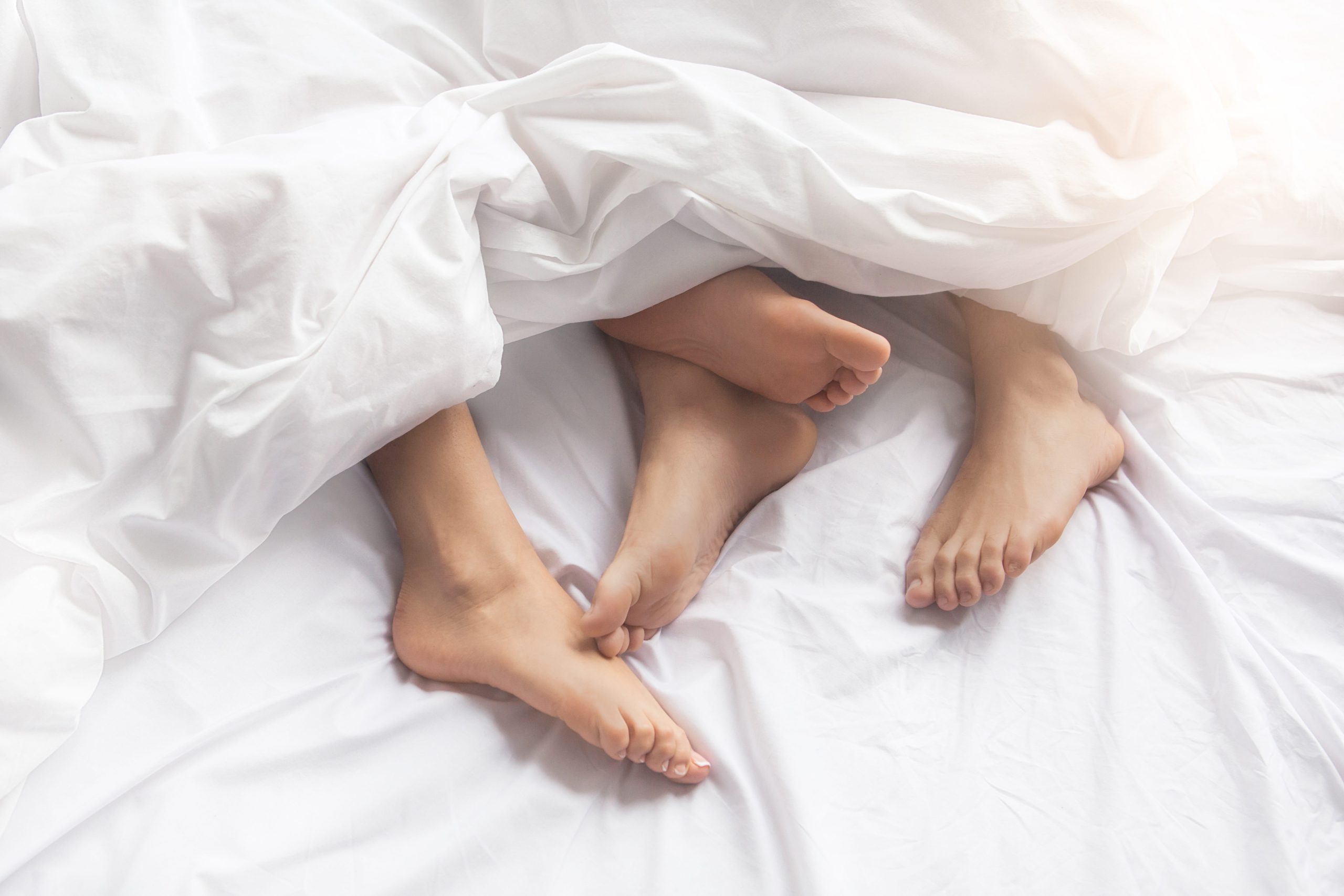

The pandemic has changed life as we know it in a lot of ways – including our sex lives, studies show.
While some people have reported more sexual activity during the pandemic, many saw a decline. Other studies show a spike in people trying a new experience.
Experts say lockdowns and stay-at-home orders were a time for many to bond with their spouse or partner. But for others, sex was the last thing on their mind as they navigated new health precautions, getting vaccinated and more.
“This pandemic wasn’t experienced the same way by everyone. In terms of lockdown restrictions and what was going on in their local area, and also the degree of personal concern people had about COVID,” said Justin Lehmiller, a research fellow at the Kinsey Institute at Indiana University and the host of the “Sex and Psychology" podcast.
“Some people were living with a partner in an established relationship. Some people were living alone,” he added. “The circumstances were just totally different for everyone."
How much sex are people in the U.S. having during the pandemic?
Experts say a couple having sex once a week is a common baseline. But that tends to apply to 40- and 50-year-olds, while 20- and 30-year-olds have reported an average of approximately twice a week.
But researchers have cautioned that sexual frequency is different for every couple – a dynamic that was especially true during the pandemic.
“I know people always say, ‘How often should a couple have sex?’ And I go ‘As much as they want to,’” said Justin Garcia, the executive director of the Kinsey Institute. “There’s all sorts of reasons that individuals and couples might modify in the current environment.”
According to a survey released by the Kinsey Institute and Lovehoney in June, both single people and people in relationships reported a mix of how their sex lives changed, or stayed the same, during the pandemic.
For single people, 38% said they were having sex less often than they did before the pandemic, compared to 36% who reported no change and 26% who reported more sex.
But for people in relationships, 19% said they were having less sex than they did before the pandemic, while 35% reported no change and 46% reported more sex.
Garcia explained that both singles and individuals in relationships might be less interested in sex during the ongoing pandemic because many were “mobilizing a threat response.”
“The world around us was so challenging. It was scary,” Garcia said. “There was an infectious disease that had become a deadly pandemic. There were economic implications for that. People were staying home from work, from school. Those aren't any of the ingredients that we know from decades of research that are conducive to sexual interest.”
“An example I always use is that two gazelles don’t mate in front of a lion,” Garcia said.
But Lehmiller explained experts also know why some people, especially those who live with their partners, reported having more sex during the pandemic.
“Some people, when they’re really stressed, they turn to sex as a form of stress relief,” he said.
No sex, please, we're in a pandemic:Who can be intimate, who shouldn't while in coronavirus quarantine
'If I could only Lysol my husband, too':Sex in the age of coronavirus
How else did sex change during the pandemic?
Lehmiller said it’s difficult to predict how the coronavirus pandemic will affect Americans’ long-term sexual activity – and researchers have already been proven wrong.
“At the beginning of the pandemic, everyone is talking about ‘oh, people are gonna have a lot more sex, and then there's going to be this baby boom’ and then that didn't happen,” Lehmiller said.
However, researchers have seen a rise in sexual experimentation during the pandemic. Garcia noted that some research has shown that approximately one in five adults reported “expanding their sexual repertoire,” during the pandemic, a number that has increased since last year. That experimentation included talking to a partner about a sexual fantasy, using a sex toy and more.
That isn’t the only way experts think the pandemic might change Americans’ sex lives.
Match’s 2021 “Singles in America” study, which surveyed 5,000 single adults in the U.S., found that 58% said a potential partner's vaccination status was the most important issue, leading political affiliation or religion.
How are long-COVID symptoms impacting the sex lives of Americans?
Although many who have tested positive for the coronavirus during the ongoing pandemic have recovered, others are experiencing long-haul COVID-19. Experts estimate as many as 12 million people in the U.S. are experiencing long-term symptoms.
Dr. Greg Vanichkachorn, a physician at the Mayo Clinic, said the symptoms may interfere with a patient’s sexual activity. But he said his male and female patients have reported different concerns.
While female patients have raised stress and psychological impacts from prolonged symptoms, male patients have reported more physical problems to him, including erectile dysfunction.
He said that all patients with COVID-19 symptoms shouldn’t be afraid to raise concerns about sex with their doctors.
“Patients in the long-COVID group are very hard on themselves,” he said. “They’ve been told already by the time they come and see a specialist that this kind of stuff is all in their head, or they just need to tough it out. That causes quite a bit of self doubt, not to mention difficulties with something as close to the heart as sexual dysfunction.”
“Frankly speaking, I feel like we don’t see enough of this complaint,” Vanichkachorn said. “It’s always difficult for some patients to mention this.”
More:What is maintenance sex and when does it become a problem?
More:The dangers of not talking to kids about sex
More:In 2021, sex and disability are still taboo. What are we so afraid of?
Source link









